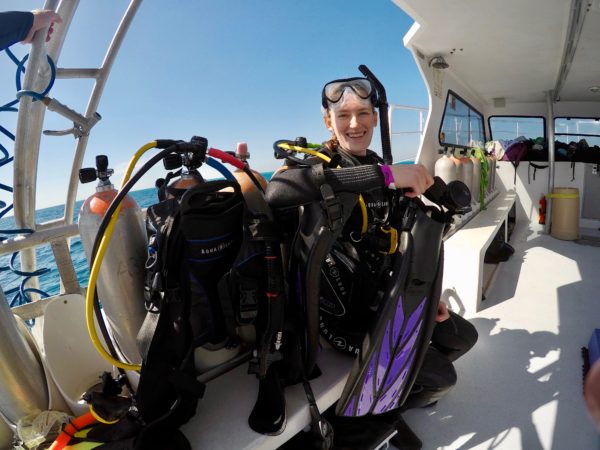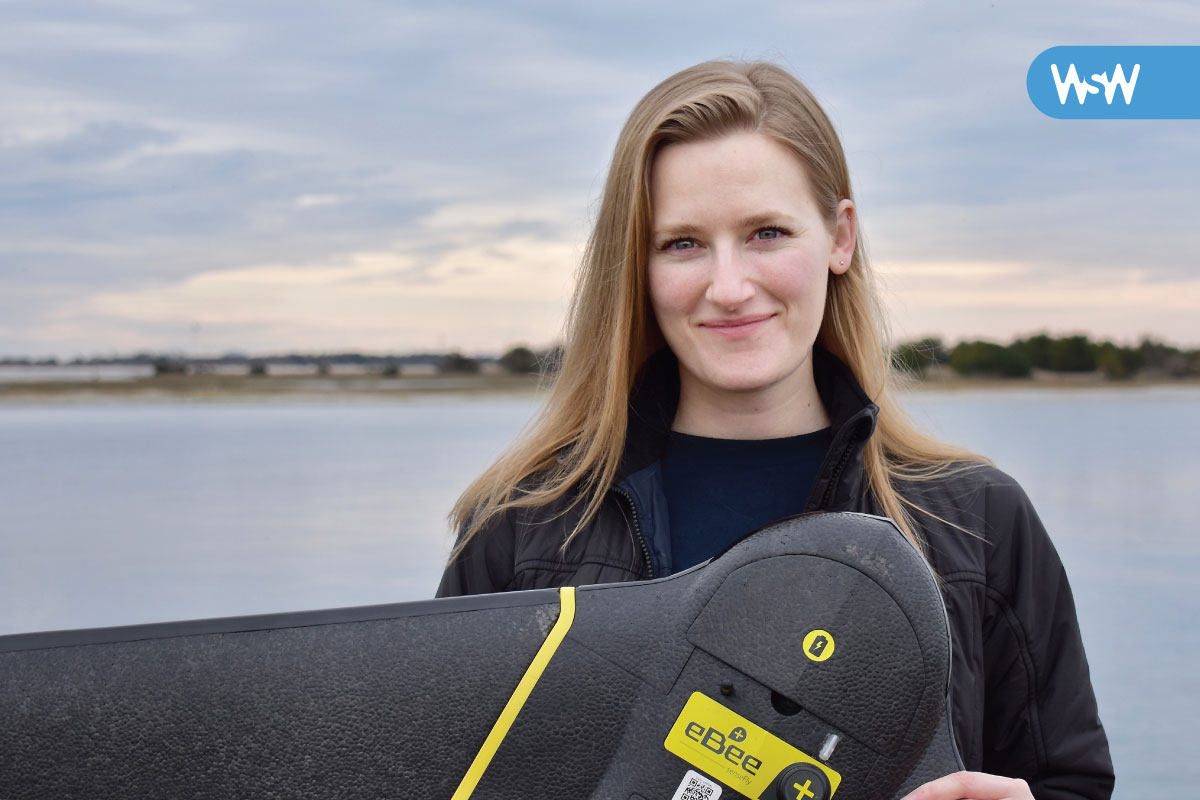When you were a child, what was your response to this question: “What do you want to be when you grow up?”
In high school, I was heavily involved in the performing arts, so for a time vocal performance or acting felt like a natural career path. But after high school, I worked in real estate for several years. Now, as a first-generation, nontraditional student, I never imagined my circuitous path would ultimately lead to research in marine science.
RESEARCH IN 5 WORDS:
“Even whales need a breather.”
Share the pivotal moment in your life that helped you choose your field of study.
My first research experience took place in the Hurlbert Lab at UNC, where I worked on Caterpillars Count! — a citizen science project aiming to determine how seasonal peaks in the abundance of insect species relate to migratory patterns of birds. Early morning data collection, which involved identifying insect species and enumerating birds by observation and recognizing their calls, showed me how simultaneously exhausting and rewarding field work can be. During this time, I also learned to program and use statistical modeling to analyze data we collected. I found it thrilling to apply these tools, which allowed me to see underlying patterns emerge in real-time as we collected each data point. These skills empowered me to pursue quantitative projects I never thought myself capable of conducting and affirmed my desire to pursue further research opportunities related to ecology and climate change.

Last year, Duprey obtained her open water diver certification in the Florida Keys — an achievement that inspired her to pursue her AAUS scientific diver certification shortly after.
Tell us about a time you encountered a tricky problem. How did you handle it and what did you learn from it?
While designing my honors thesis project, I knew I needed a way to convert my raw data — video footage of blue whales, obtained from unoccupied aircraft systems — into data I could analyze quantitatively. My research advisor, David Johnston from Duke University’s Marine Robotics and Remote Sensing Lab, pointed me to the software program BORIS, but I didn’t know how to use it. I spent hours poring through the documentation, experimenting, and troubleshooting. I was able to develop a statistical method to analyze the surface interval behaviors of blue whales from the aerial footage. Conducting this research in context of whale population challenges feels rewarding as it allows me to contribute to the body of knowledge around the ecology of whales, which could help improve conservation efforts.
What are your passions outside of research?
Scuba diving, cycling, swimming, hiking, and birding — just about anything that gets me outdoors and moving. Having these passions gets me away from the screen which promotes mental health and deepens my appreciation for the natural world. And just like whales, taking these restorative breaks allows me to tackle my next tasks with renewed energy.


